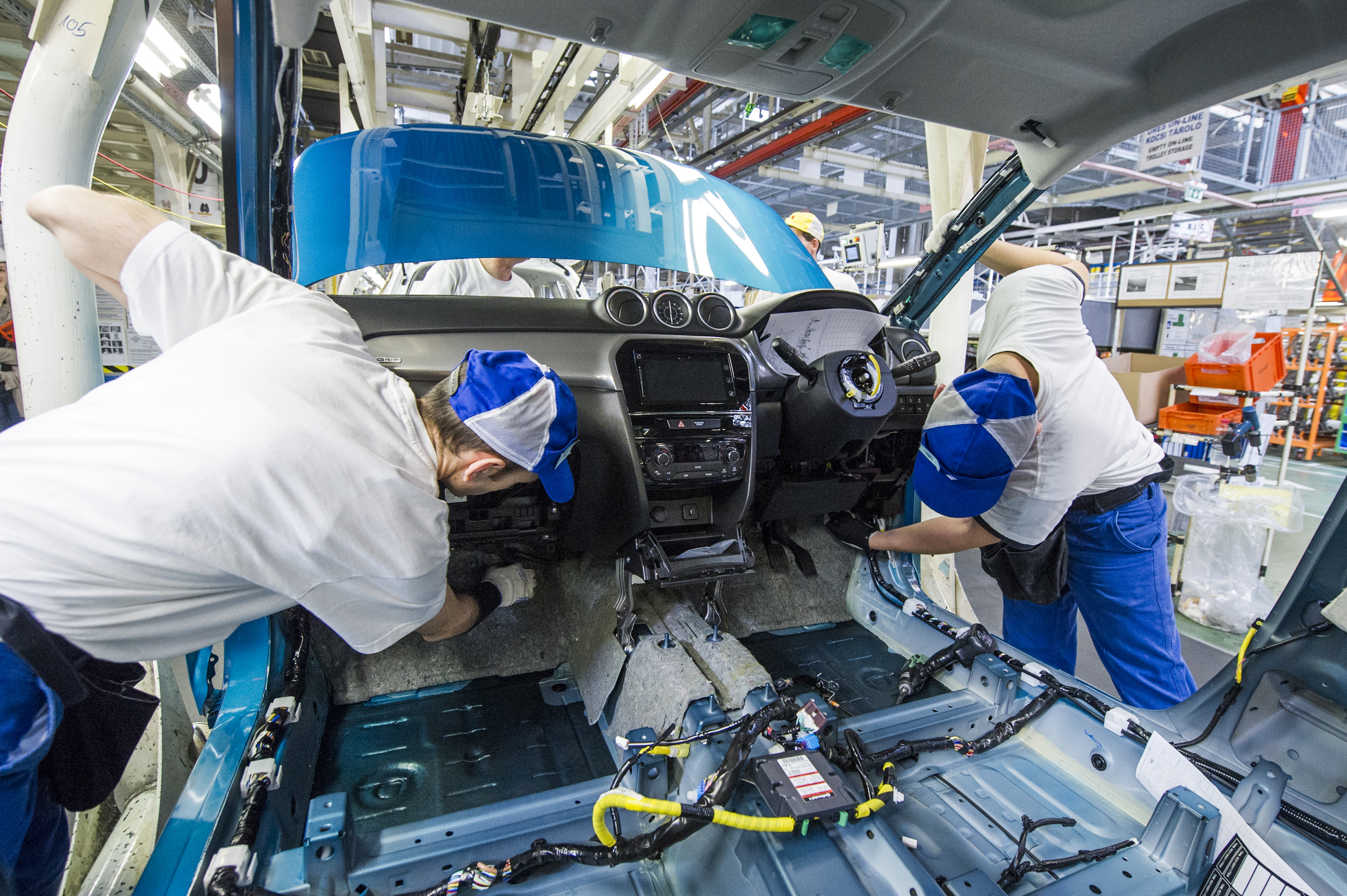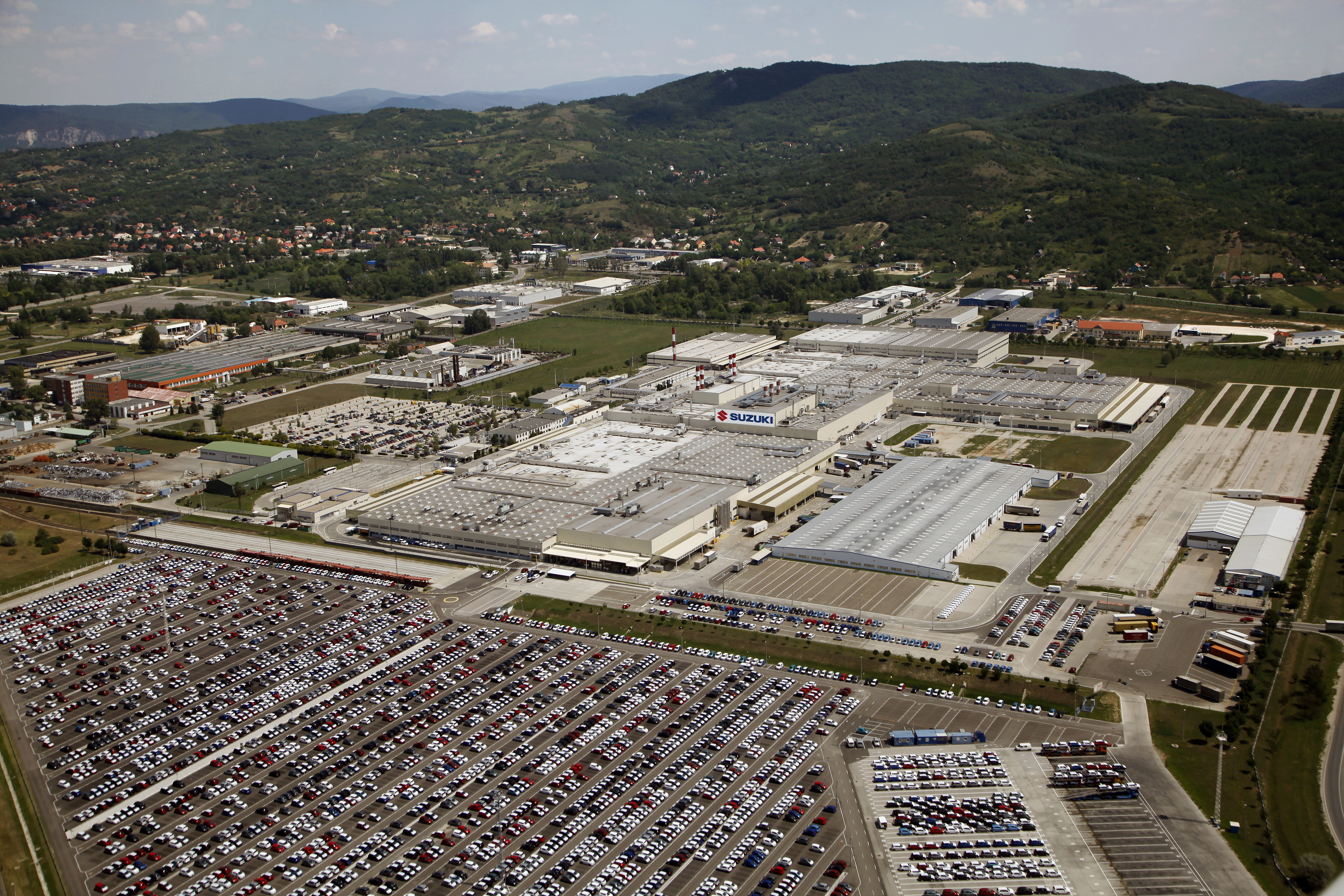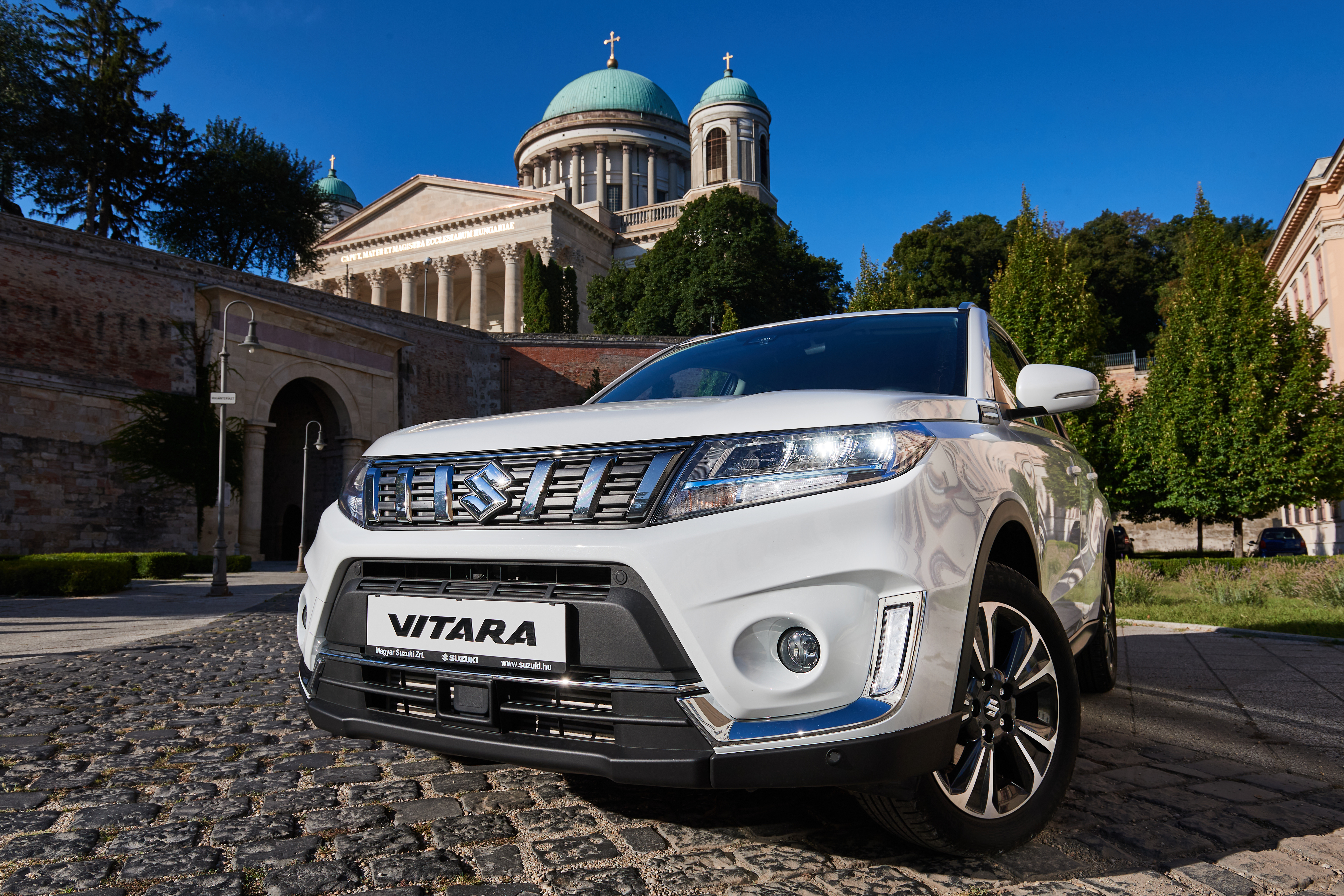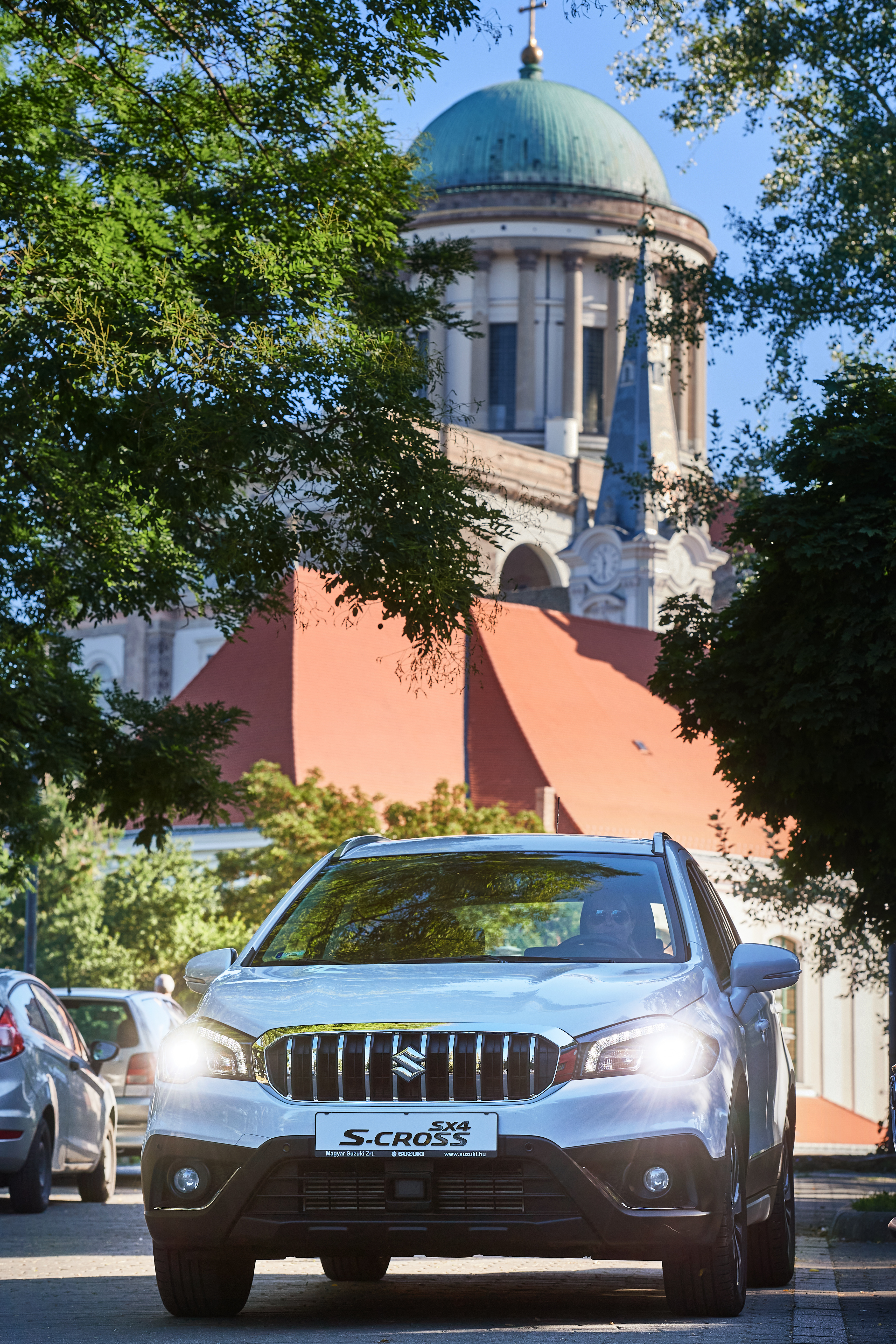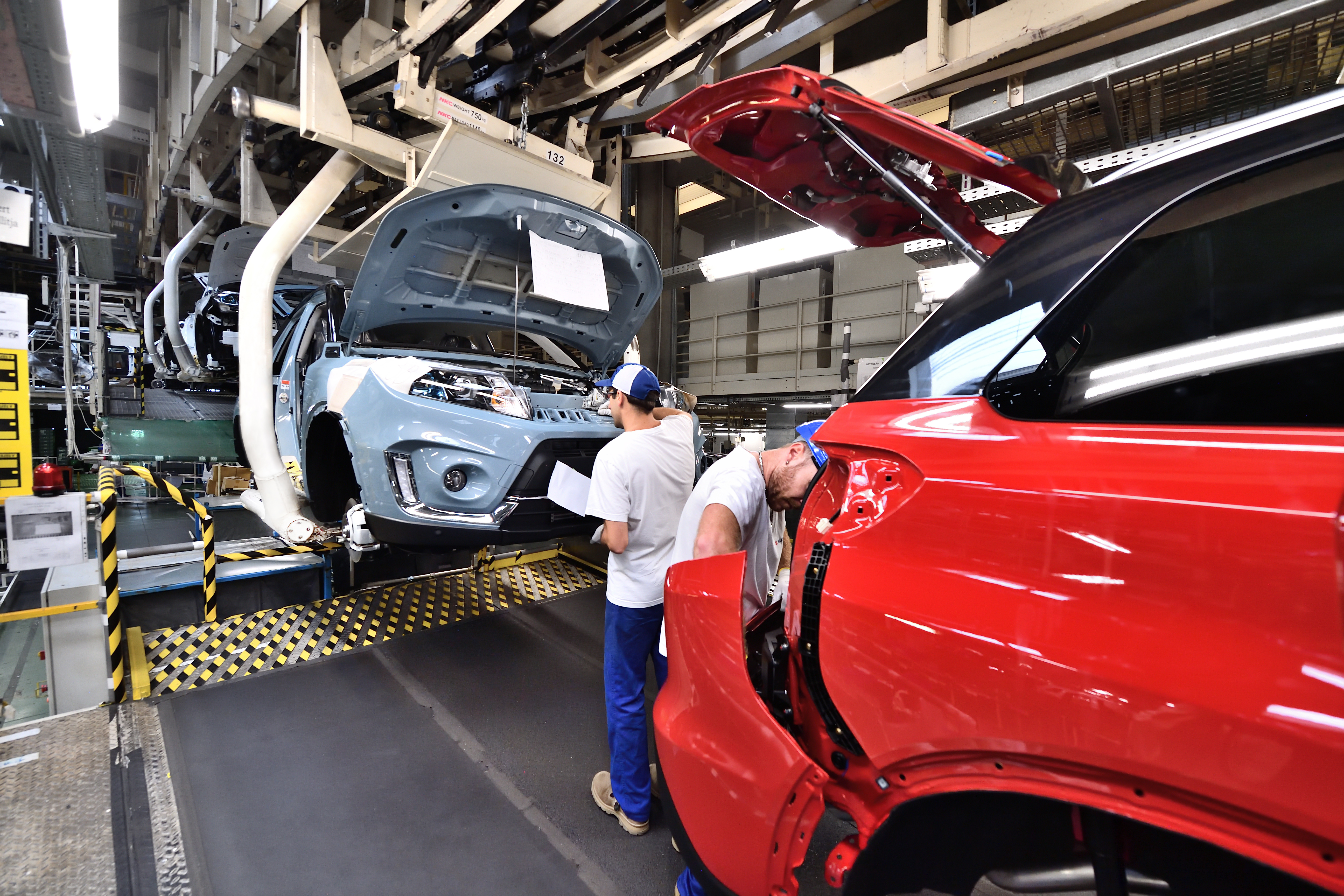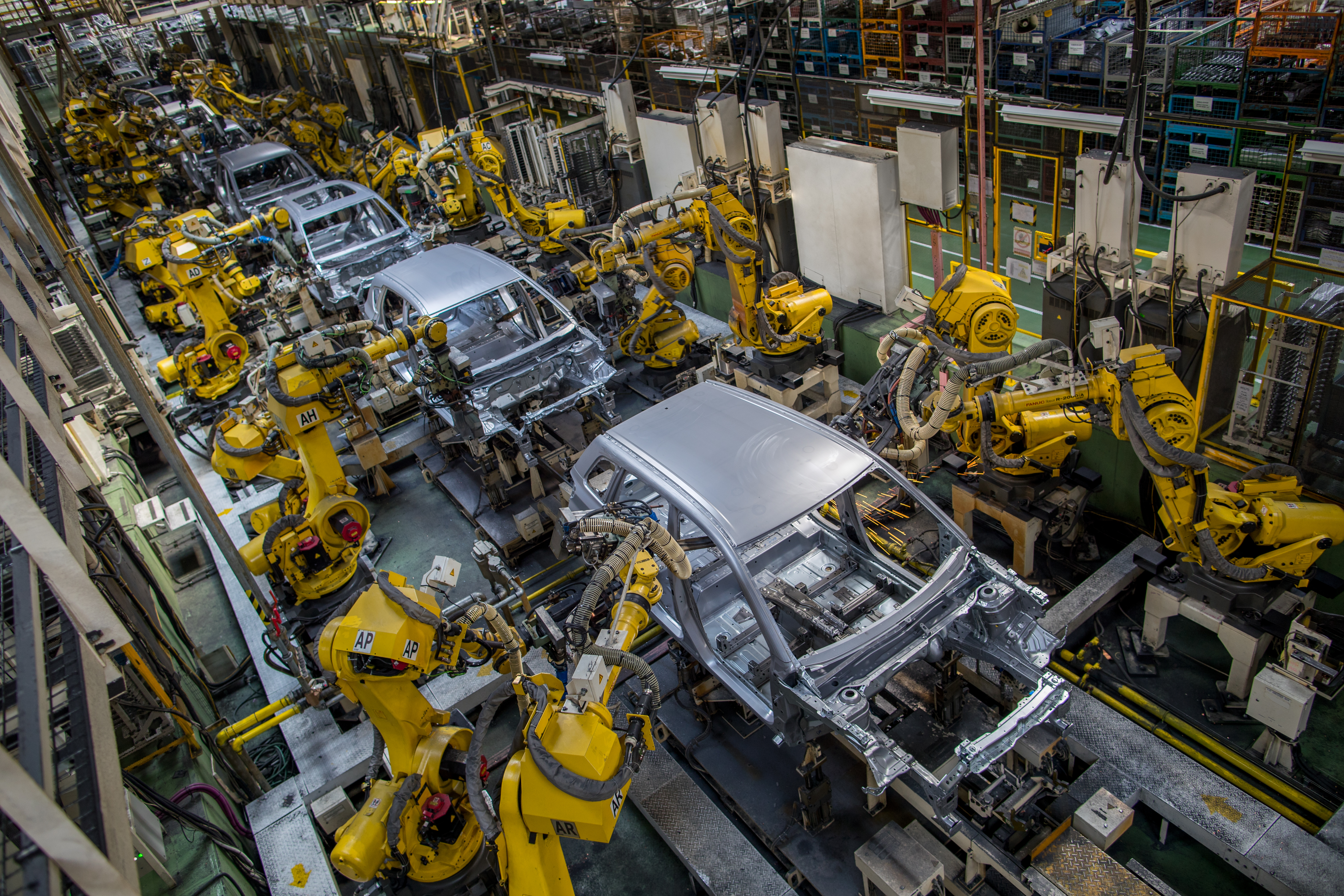news
65 percent of cars produced by Magyar Suzuki last year were hybrids
In the Esztergom plant of Magyar Suzuki Corporation, in total, 112,475 vehicles were manufactured in 2020. 87 percent of the total production volume has been exported to 123 countries. In spite of the difficulties caused by coronavirus, the company led the domestic new car market with an 11.55 percent share, dominating domestic new car sales for the fifth year in a row. Magyar Suzuki closed 2020 with a 1,656.7 million EUR net revenue. The pandemic generated 362 million HUF additional costs for the company. Suzuki Group aims to have all of its plants and global product portfolio carbon-neutral by 2050, and Magyar Suzuki is also taking this path.
The whole production palette has become greener
In total, 112,475 cars were manufactured in the Esztergom plant, 111,047 cars were sold (79,879 Vitara models, 31,168 SX4 S-CROSS models), and 87 percent of the cars produced here (96,441 models) were exported to 123 countries worldwide. Magyar Suzuki started mass production of hybrid vehicles in December 2019, and these cars made up 65 percent of the production volume in 2020. As a result of the six-week shutdown caused by the virus and the domestic and international restrictive measures, production volume in 2020 decreased by approximately 30 percent compared to the previous year. The company’s net revenue from domestic sales in 2020 was 242.7 million EUR, and its net revenue from export sales was 1,413.9 million EUR. This year, 143,000 Suzukis are planned to be assembled in Esztergom. With the high vaccination rates and the gradual easing of the pandemic situation, by 2022, the production volume of Magyar Suzuki can go back to its pre-pandemic level.
Hybrid Suzukis among Hungary’s favorite new cars
Magyar Suzuki, which is currently celebrating its 30-year anniversary, managed to hold its market leader role in 2020 for the fifth year in a row: the company closed last year with 14,783 new cars registered in Hungary, and an 11.55 percent market share. The favorite new car model of the Hungarians was the Vitara again, 6,882 units were registered between 1 January and 31 December 2020. Since January 2020, Magyar Suzuki has been selling hybrid cars for the EU markets, which includes Hungary as well. It is therefore not a coincidence that last year, the 3.5 millionth Suzuki manufactured in Hungary was a snow-white hybrid Vitara.
Among the TOP 3 models of the passenger car market, Suzuki SX4 S-CROSS took the second place on the imaginary podium. Altogether 5,578 units were sold from the most popular C-segment new car in Hungary until the end of 2020. The two Hungarian-manufactured crowd favorite Suzukis gained professional recognition as well: in 2020, the SX4 S-CROSS won first prize in the Hungarian Car of the Year competition, and the Vitara won the silver medal. Last year, 11.55 percent of all commissioned passenger cars in Hungary – 128,031 units – were Suzukis.
Significant achievement on four wheels, two wheels and water
Suzuki has not only strengthened its position in the automotive segment but in the motorcycle and outboard engine categories as well. Magyar Suzuki has sold 34,346 motorcycles and 6,647 outboard engines in the domestic and foreign markets since 2005. Suzuki Marine has been the CEE region center since 2017 and is a market leader in Hungary with 644 registered outboard engines. The division exported 1,893 outboard engines in 2020 to Estonia, Latvia, Lithuania, Belarus, the Czech Republic, Slovakia, Romania, Serbia, Montenegro, Bulgaria, and Albania.
The Motorcycle branch of Magyar Suzuki has been the distributor with the largest market share for six years in Europe within the Suzuki Group. The company commissioned 479 motorcycles last year in Hungary. The V-Strom 650 adventure bike preserved its TOP 3 position not only in its own category, but also compared to all models: with 163 units placed on the market, it was the second most popular motorcycle in Hungary in 2020.
The Suzuki Group got stronger during COVID
To ensure the health of its employees and uninterrupted production, Magyar Suzuki paid special attention to safe working practices and compliance with enhanced hygiene standards. The introduction of precautionary measures, the necessary tools against the virus (masks, quick tests and PCR tests), and the official vaccination site created in-house generated 362 million HUF additional costs for the company. Beyond that full salaries were given to every employee during the shutdown as well. Last year, on average, employees received a twelve-percent wage increase, and in the last four years, after consulting with the Works Council, the salary of physical workers increased by 65 percent, and the salary of office employees increased by 43 percent. Employees received bonuses three times, half their monthly salary in June and September, and according to attendance and performance, one monthly salary in December. In 2020, the aim was to strengthen the company’s own workforce.
Digitalization, robotization
Last year, the implementation of projects under the Economic Development and Innovation Operational Programme (GINOP) continued with success. The program started in Esztergom in 2016, contains several Industry 4.0 development elements, and aims to increase competitiveness. Robotization continues to get greater focus in developments, and the ultimate goal is to increase the digitalization of production. Last year’s investments focused on the new emissions lab, and the robotization developments of the paint shop. In the future, a growing number of collaborative robots will be operated in the plant, which will increase the smooth collaboration of machines and humans.
On the way to carbon neutrality
In line with global market trends, Suzuki Group aims to have all of its plants and global product portfolio carbon-neutral by 2050, and our parent company entrusted its subsidiaries with the mode of implementation. At Magyar Suzuki we launched the “Greener plant, greener cars” internal program tailored to Magyar Suzuki, within which the Esztergom plant will find and incorporate CO2 emission reducing technologies into the manufacturing process and cars in each shop.



